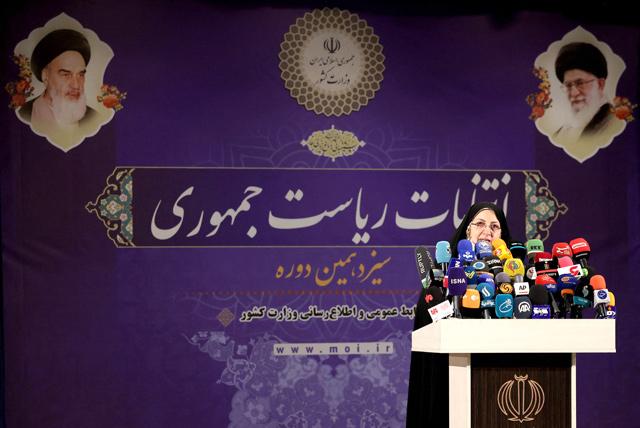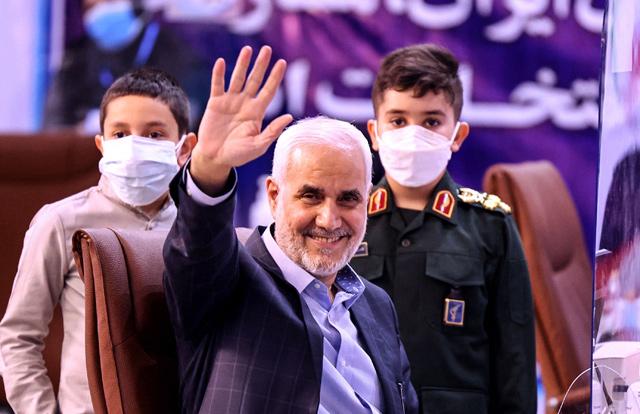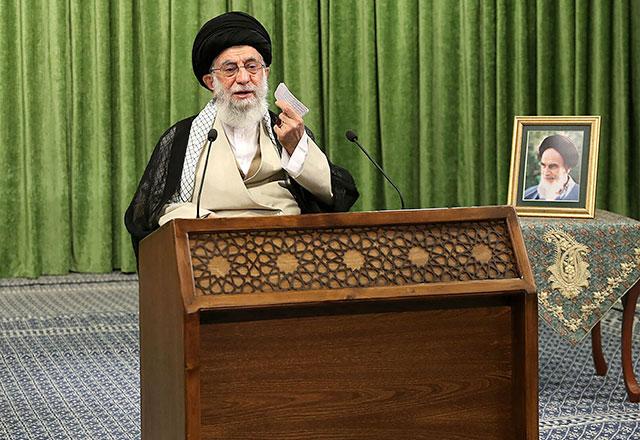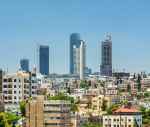You are here
Iranians to vote as ultraconservatives eye easy victory
By AFP - Jun 10,2021 - Last updated at Jun 10,2021
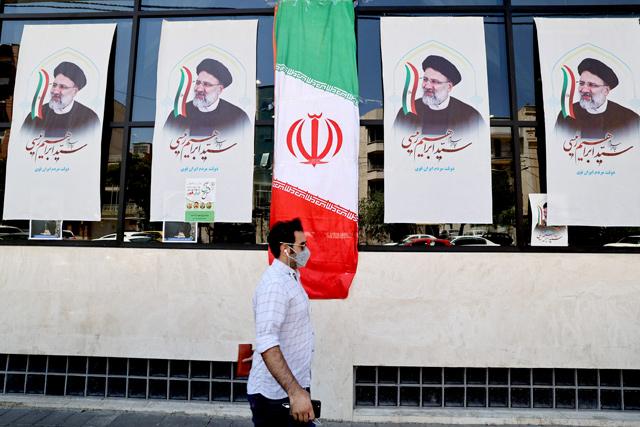
An Iranian man walks by posters of presidential candidate Ebrahim Raisi outside a campaign office in Tehran, on June 7 (AFP photo)
TEHRAN — Iranians will vote for a new president on June 18 in a poll many see as decided in advance, with ultraconservatives expected to strengthen their grip on power amid record low turnout.
Just seven men have been approved to run — five ultraconservatives and two reformists — to take over from President Hassan Rouhani, who after two four-year terms in a row is constitutionally barred from running again.
With his main rivals excluded from the final list of candidates, judiciary head Ebrahim Raisi is the clear favourite in the 13th presidential poll since Iran's 1979 revolution.
Rouhani took office vowing to seek better ties with the West. But that stance took a severe blow in 2018 when Washington under Donald Trump withdrew from a landmark agreement on Iran's nuclear programme and reimposed biting sanctions.
This year's election coincides with negotiations in Vienna to revive the 2015 nuclear deal.
But a breakthrough appears unlikely before the vote, and both Tehran and Washington have voiced doubts over the prospects of success.
The renewed sanctions have plunged Iran into a deep economic and social crisis, further exacerbated by the pandemic.
Iran saw two waves of winter anti-government protests in the years prior to the COVID-19 outbreak, both of which were harshly put down.
Economic crisis
In a live televised debate Saturday, Raisi avoided clashing with reformists, instead focusing on Iranians' economic woes.
"Inflation is one of the serious problems people are facing today," along with the "dishonesty of certain officials," he said.
Iran's conservative camp has blamed the reformists for having trusted the West — but Rouhani on Wednesday defended his track record after eight years in office.
"It was the nuclear deal that put the country on the path to [economic] development, and today the solution to the country's problem is for everyone to go back to the deal," he said. "We don't know any other way."
Campaigning kicked off in late May with little fanfare. Few campaign posters are visible in Tehran apart from those of Raisi, who took 38 per cent of the vote in the last election in 2017.
The mood has been dampened by coronavirus restrictions on public gatherings, and observers expect many voters to abstain — something that tends to favour the conservative camp.
Last year's parliamentary elections saw 57 per cent abstention and allowed conservatives to dominate the legislature, after thousands of mostly reformist or moderate candidates were disqualified.
In recent weeks, the Iranian press had widely predicted a showdown between Raisi and moderate conservative Ali Larijani, an adviser to supreme leader Ayatollah Ali Khamenei.
But after the powerful Guardian Council barred Larijani and other heavyweights from the poll, those who remain appear unlikely to pose a serious challenge to the ultraconservative judiciary chief.
'More coherent'
The office of president has limited powers in Iran, where ultimate power lies with the supreme leader.
Clement Therme, an expert at the European University Institute in Florence, said Iranian leaders hoped this month's election would help make the "regime" more "coherent".
Having taken control of parliament in 2020 and "faced with the impoverishment of the population", conservatives are "now preparing the ground... for a Raisi victory", he said.
He added that other scenarios were unlikely, as rare opinion polls show that less than 40 per cent of the electorate intend to vote.
With opposition groups outside Iran using social media to call for a boycott, Khamenei has urged Iranians to vote in numbers in a show of defiance to the "enemies of Islam".
He also ordered candidates to focus on the economy.
Raisi's challengers include ex-Revolutionary Guards chief Major General Mohsen Rezai and ultraconservative former nuclear negotiator Saeed Jalili.
The list also includes reformist ex-vice president Mohsen Mehralizadeh and central bank governor Abdolnasser Hemmati.
Both are seen as reformists but neither has gained the support of the main reformist coalition.
If no candidate wins an overall majority on June 18, the two with the most votes will go head-to-head in a second-round run-off on June 25.
Related Articles
TEHRAN — Two Iranian political heavyweights, ultra-conservative Ebrahim Raisi and moderate conservative Ali Larijani, on Saturday launched w
TEHRAN — Iran on Tuesday approved seven hopefuls to run in next month’s presidential poll, a list dominated by ultraconservatives and deemed
TEHRAN — Iran's supreme leader on Thursday urged voters to ignore boycott calls and turned a deaf ear to criticism over the rejection of a



